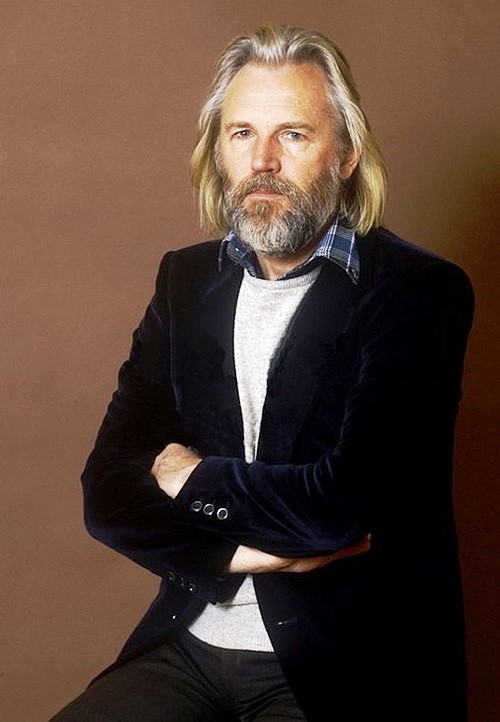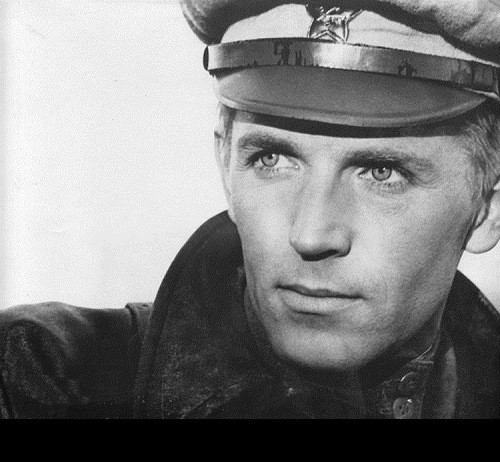
Stanislav Lyubshin is a real symbol of the Russian people, and the actor who was able to turn the concept of a “leading role” – to show that it does not need a lot of text, but simply silence. He opened to the world, what the universe is behind embarrassed smile of Russian people. Stanislav Lyubshin – the star of the Soviet and Russian cinema. He rarely appears in public, almost never gives interviews, does not appear in various shows, festivals, avoiding publicity.
His words, actions, thoughts expressed out loud, they are a reflection of the inner life, a very deep and rich. Lyubshin is a unique actor, he is a fusion of intellectualism, openness, spiritual sensitivity, and inner strength. You can see him exceptionally on the stage of Moscow Art Theater and rarely at film festivals. It is surprising that having such a unique acting talent, attractiveness and charisma, the actor is rarely seen on the screen. Perhaps he is tired. This happens with actors, having behind serious roles.
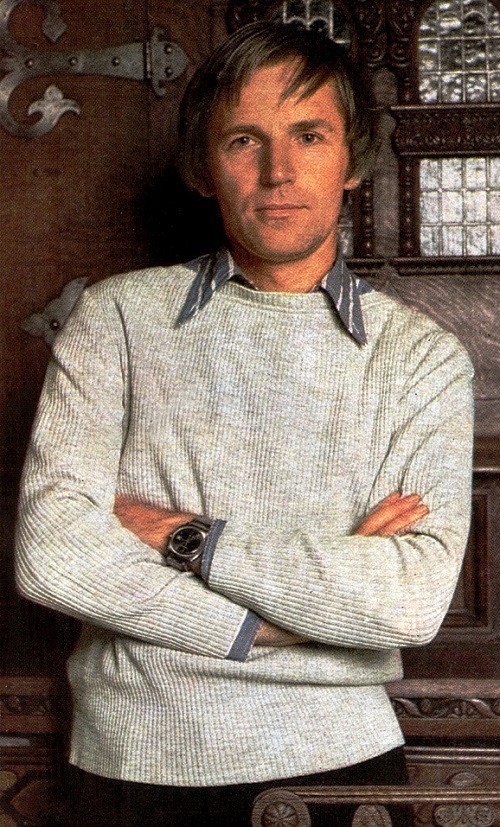
Stanislav Lyubshin was born and raised in a village of Vladykino, now – the territory of Moscow. His father was an agronomist, and mother worked in the barnyard. Stanislav, the eldest of three children in the family, from an early age had a responsible attitude toward life. Eight-year boy, he started working on a farm garden. Life in those years was not easy. Mother of Stanislav, like other women, got up at four in the morning, went to milk the cows, and then returned in the evening from work, stayed home and children. And she had a passion – theater. As a very beautiful woman, she always had leading roles in the local theater.

Stanislav became interested in theater too. He joined the drama club during his school years. Then there was a study in the oxygen-welding college, military service. After college director offered Stanislav to stay there to work, but at his heart was already living indestructible love of theater.
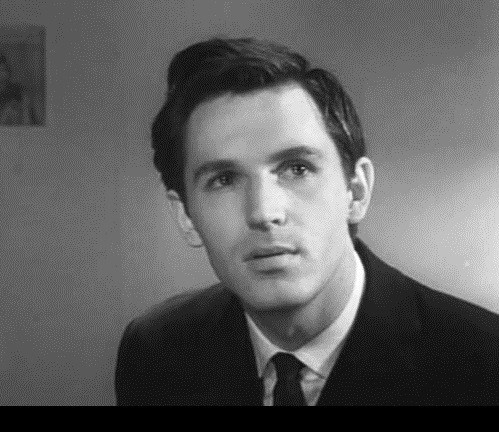
Before to apply to theater school, Stanislav Lyubshin decided to consult with his parents. He recalls: “My father and mother are sitting, watching television. And there Ivan Kozlovsky is singing, and behind him is the chorus. I said: “Mom, Dad, I want to test myself, to take the exam in the Theatre Institute.” Mother began to cry, and the father was silent, and said: “If you will be like him – pointed to Kozlovsky – try. If as those behind him, then don’t”.
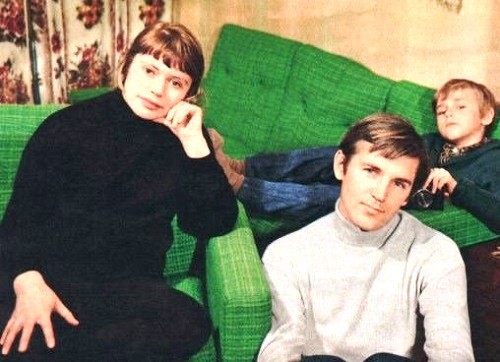
In 1959 Stanislav Lyubshin graduated from the Theater School named after M. Schepkin. His thesis was the role in the play “Optimistic Tragedy.” There also noticed a talented graduate who has worked with young Oleg Tabakov. On his recommendation, Stanislav Lyubshin was admitted to the troupe of Sovremennik Theatre.
“Sovremennik” Stanislav Lyubshin worked for four years. In addition to the play “Five Evenings”, he is remembered by theater audiences for his roles of Henry and Christian in the play “The Naked King” and “Two colors”.
1964 Lyubshin joined the Taganka Theater, where he worked until 1967. Among the most famous works on the stage of this theater – roles in “The Good Person of Szechwan” and “Hero of Our Time.”
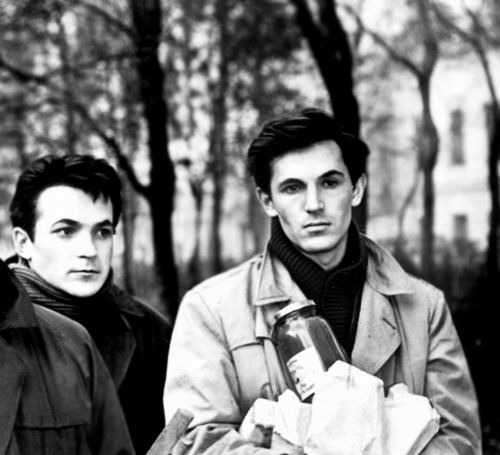
In the movie Stanislav Lyubshin began filming immediately after drama school. However, despite some good work, fame came to him only after the role played in the 1963 film directed by Marlen Khutsiev “I Am Twenty”. The film became a kind of debut of a whole generation of filmmakers – Andrei Tarkovsky and Andrei Konchalovsky who both played small roles in the film.
In the film “I Am Twenty”, he played the role of Slava Kostikov. Already in this work showed great quality actor – psychological subtlety in the depiction of his characters, the reliability of life, intelligent style of play. The film was awarded the highest honor – got the Special Jury Prize at the Venice Film Festival.

Even as a teenager, Stanislav Lyubshin wanted to fight against the Nazis. Together with his friend, he even tried to get to the front, but the venture failed. His childhood dream Lyubshin was able to experiment by becoming an actor. In the 1960s he starred in the films about the war: “The third rocket,” directed by Richard Viktorov on the novel by Vasil Bykov and “Alpine Ballad” directed by Boris Stepanov. And in 1967 Lyubshin was invited to the series “Shield and Sword”.

In the adventure series “The Shield and the Sword” by outstanding actor and director Vladimir Basov, Lyubshin played the role of Soviet spy Alexander Belov, who worked during the war years in Berlin under the name of Johann Weiss.
The film was put on the novel by Vladimir Kozhevnikov – the book, frankly, is not of the highest quality. However, in contrast to its source, the film turned out a success. Smart, brave, charming Johannes Weiss, wearing an SS uniform with a special grace, was loved by millions of viewers, marking the beginning of an entire gallery of Soviet film-spies (among which, five years later, and will be the inimitable Stirlitz in “Seventeen Moments of Spring”).
After the film “Shield and Sword” Lyubshin becomes in demand in the movie. That’s just as it, as usual, he was offered roles of the same type. Stanislav said: “This is the end of everything. I am a character actor, and I refused and waited for something else … ”

Fortunately, this period did not last long. In 1970 Lyubshin appeared on screen in the role of the Commissioner Amelin in historical revolutionary drama by Vasily Ordynsky “Red Square”. The actor played a man possessed by the high revolutionary idea, able to sacrifice for it. In 1972, viewers saw Lyubshin as a young scientist Samson Kotikov in impulsive drama by Ilya Averbukh “Monologue”. And after a couple of years in the melodrama “Ksenia, Fedor’s Beloved Wife”.
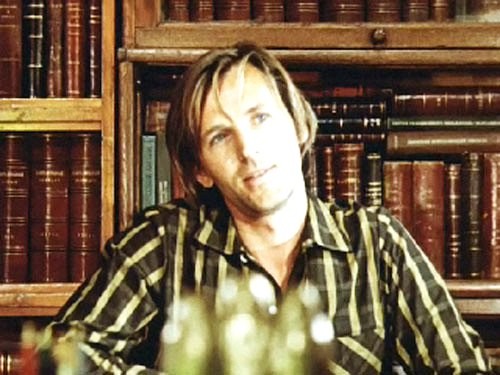
1970s can justifiably be considered a real flowering of talent of Stanislav Lyubshin. In addition to these works the actor played a very interesting role in the biographical series “My Life” (on the works of Anton Chekhov), “Happy Go Lucky” by Vasily Shukshin, a drama by Sergei Bondarchuk “The Steppe” (based on Anton Chekhov) and others.

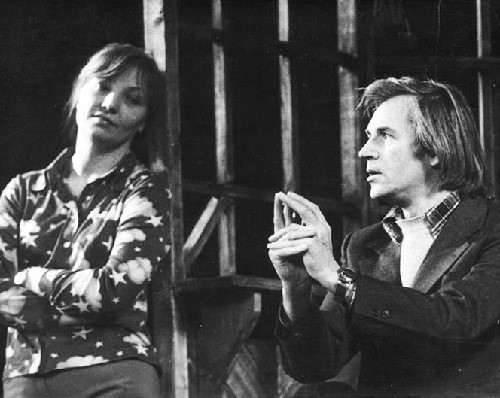
After a short break Lyubshin returned to the stage, becoming in 1974 the actor of Yermolova Theatre. Here he played the role of Shamanov in the play “Last summer in Chulimsk” and teacher in the play “The House with the windows in the field” Three years later, Lyubshin moved to Malaya Bronnaya Theatre, where he has been involved in productions of “Veranda in the Forest” (Pakhomov) and “End of Don Juan” (Sganarelle and Leporello).

To his directorial debut Stanislav Lyubshin sought for many years. In 1964, on the set of children’s film story “What is the sea?” he had the opportunity to meet with Vasily Shukshin, prominent Russian director, writer and actor.
In the early 70’s dream of Stanislav Lyubshin could be realized. Shukshin gave him the script of his novel “Call Me To Shining Far Away”. In 1977 the film “Call Me To Shining Far Away” was released. The main role in this honest and lyrical tale, which tells about the plight of a single woman Grusha Veselova, played a widow of Vasily Shukshin – Lydia Fedoseyeva-Shukshina.
Lyubshin himself in the film acted not only as a director but also starred in one of the main roles. His character – loser and alcoholic. Creating an image Stanislav Lyubshin based on his own observations. The film was highly acclaimed in the Soviet Union and abroad. In 1977, at the International Film Festival in Mannheim it received the FIPRESCI Prize.
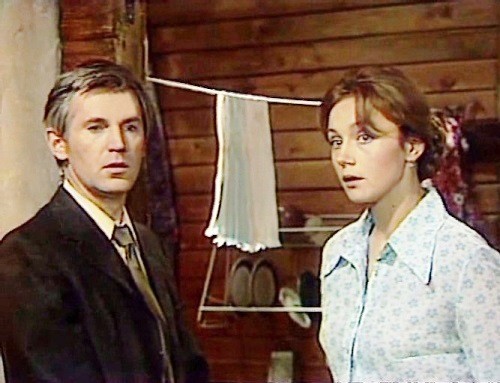
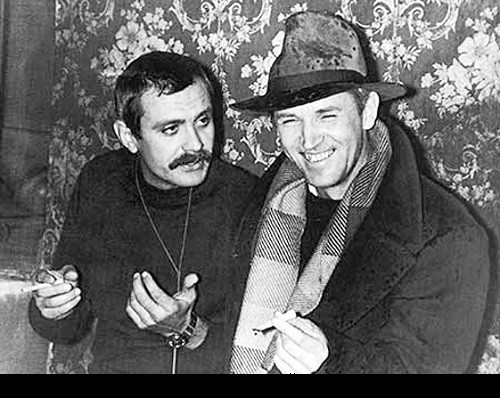
One of the best works in the work of Stanislav Lyubshin was his role in the film of Nikita Mikhalkov “Five Evenings”. For Lyubshin this film has become a landmark. As already mentioned, his theatrical career as an actor began in the “Sovremennik” with the play “Five Evenings”, then performing the role of Slavka. And now, 20 years later, he reappeared in the “Five Evenings”, but now on the silver screen.
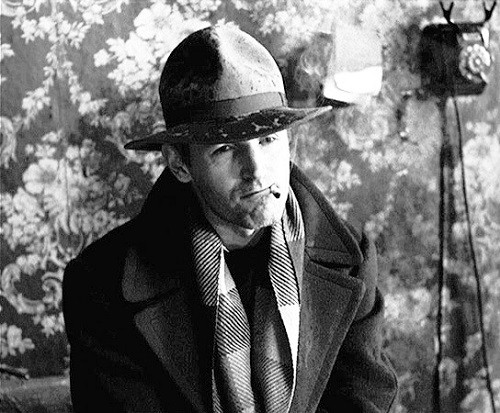
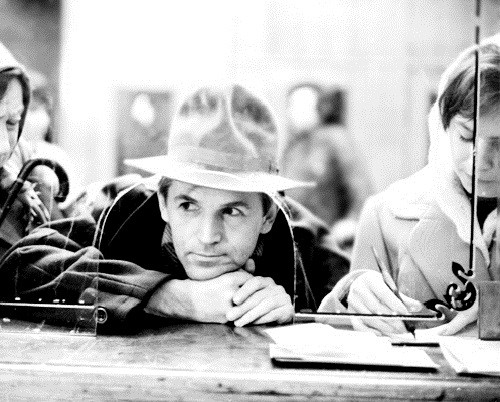
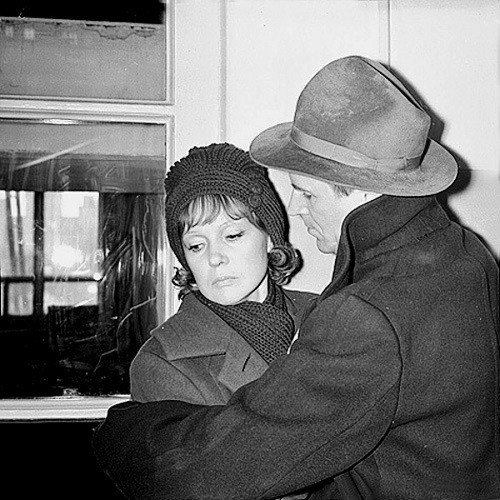
The film was completed in the shortest periods, a record for of Soviet cinema – about three months, but it did not affect its quality. Poignant, lyrical drama in retro style has not left viewers indifferent. According to the poll of the magazine “Soviet Screen” Stanislav Lyubshin second time in his life was named best actor of the year. The movie was highly rated abroad. In 1979 it was named the best foreign film in Bulgaria and Poland, and also received an award at a film festival in France.
In the 1980s Stanislav Lyubshin has joined the rank of internationally recognized star. By this time, on the screens was released another film with his remarkable work – in Rodion Nakhapetov’s drama “Don’t Shot White Swans” on the novel by Boris Vasilyev. In this film Lyubshin played forester, trying to single-handedly fight poachers.
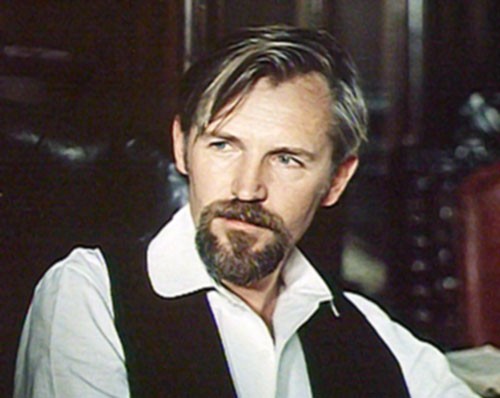
Also in 1980, Stanislav Andreevich directed his second film – the drama “Three years” on the play by AP Chekhov. Love to the creativity of Chekhov was always present in the soul of Stanislav Lyubshin. Probably no coincidence that in 1981 he came to work in the Moscow Art Theatre (since 1989 – Moscow Art Theatre of Chekhov). After two decades of wandering in various theaters Lyubshin finally found “his” stage. Psychological thoroughness, gentleness, quiet charm of the actor is very consistent this theater. He is a very Chekhovian actor, and not by chance his best roles were in The Cherry Orchard, The Three Sisters, Ivanov, and other plays.
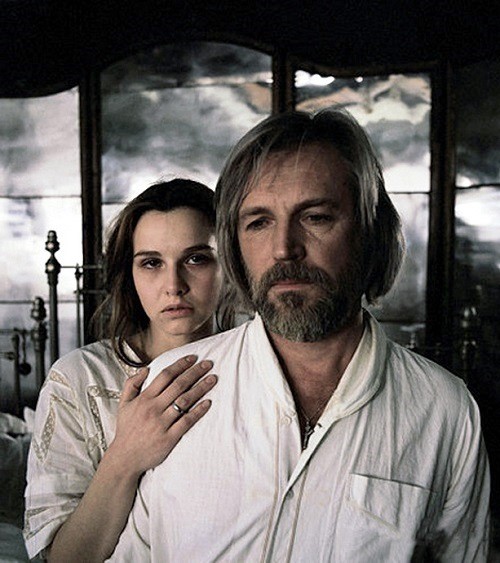
In the 80s Lyubshin began to act in films much less, but those films that came out in cinemas, became an event. These are drama by Evgeny Gerasimov “Joys of the Youth” (1987) and by Ivan Dykhovichny “The Black Monk” (1988), and of course, a fantastic parable by George Danelia “Kin-Dza-Dza” (1986).
In the comedy “Kin-Dza-Dza”, which has become a truly iconic, Lyubshin excellently, with a good sense of humor, played a foreman Vladimir Mashkov, or simply Uncle Vova, than testified that he is not only subject to serious dramatic roles.
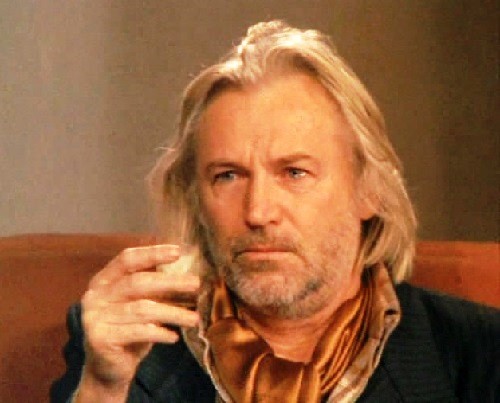
In the early 90’s Stanislav Lyubshin starred in several films, so to say, not the best quality (“Shkura”, “Idiot’s Dreams”), and then focused on the work in the theater. Actually the actor didn’t make his choice – the Russian film industry was in complete ruin.
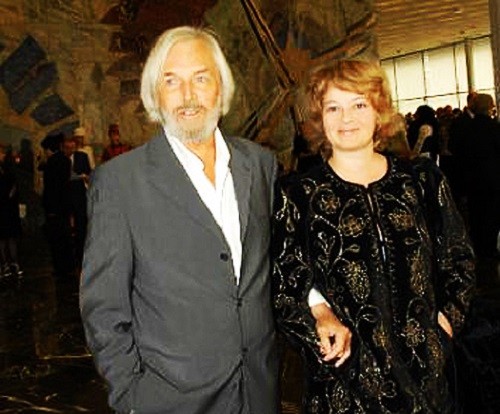
Once again, Stanislav Lyubshin returned on the screens at the beginning of the new century. In a touching film by Valery Rubinchik “Cinema about cinema” Lyubshin paired with Tatyana Lavrova playing actors proved unnecessary in modern cinema.
Stanislav Lyubshin has two sons and a granddaughter, all of them appeared in the movie, though the youngest Vadim later drastically changed his life.
